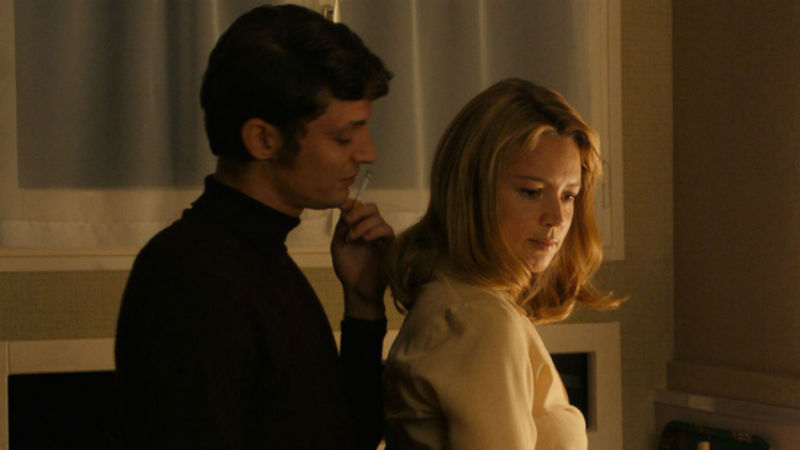QUICK AND DIRTY: LIVE FROM CANNES
This is a movie that rightly deserves the spotlight. It indeed received abundant attention for the media, but mostly for the wrong reasons. Homecoming’s Cannes premiere was overshadowed by accusations of improper behaviour towards the cast because of a scene of sexual nature involving two adolescents. Furious feminists sent the director hate e-mails and demanded that the film is pulled from the Festival). The director defended her actions, but eventually conceded that she will use intimacy coordinators in the future. Describing a fully-dressed, simulated masturbation scene between a 15- and a 17-year-old as sexual harassment is on a par with calling David Bowie a paedophile for dating a 13-year-old when he was aged 15. Frivolous and absurd.
The 10th feature film by the 67-year-old French filmmaker is a story simple on the surface and profound in its emotions. It takes a candid approach towards sexuality, bursting with authenticity and performances that are beyond engaging. The film begins with a desperate black woman with two small children leaving Corsica. It’s not entirely clear why she’s crying, but it’s evident that she’s departing. Fast-forward about 14 years. Khédidja (Aïssatou Diallo Sagna) returns from Paris with her now grown-up children: Jessica (Suzy Bemba) is 18-year-old intelligent and confident young woman about to enter a prestigious university in Paris, while Farah (Esther Gohourou) is a more dysfunctional 15-year-old prepared to rob and to trade marijuana in order to raise some holiday cash. The two teens have an affectionate relationship, despite their different personalities. The three of them stay with Khédidja’s boss Marc (DenisPodalydès), his wife, his tomboy, happy-go-lucky teen daughter Gaïa (Lomane de Dietrich), and his smaller children. However welcoming, the fact that Marc and his family are white and Khédidja’s are black is the first reminder of fraught race relations in France. And it doesn’t take long before the black teens experience racism in far more vivid colour in a very insular (in both the literal and figurative sense of the adjective) Corsica.
Jessica and Farah were born in Corsica to a white father, whose fate and complicated family history are revealed later in the film. He was loving and devoted to his daughters, and it took a cruel twist of fate to destroy the family. Khédidj never felt welcome in such a closed community. She felt like an the outsider on a perennial holiday. The problem is that a holiday should not last very long. And it didn’t. Khédidj is now attempting to reconnect with the place where she once lived, and she is kindly aided by her boss, his wife and an indeed an old friend. The girls seek to establish a connection with a homeland hitherto foreign to them.
The three (black) women become romantically and sexually engaged with local (white people), with Jessica firmly treading on homosexual territory for the first time. A masturbation scene between 15-year-old Gohourou (the actress has the same age as her character) and 17-year-old Harold Orsoni (who also plays a character presumably of the same age) is the controversial one picked up by the French media, and it did not make the final cut. Gohourou and Bemba deliver high-octane performances. The scenes of sexual nature are gentle and moving. And this isn’t the only tender element of the film. There are gentle subversions all over: family, race, gender, and sexuality.
Gohourou is passionate and funny as an irresistibly naughty and unapologetically confrontational teen who feels that her mother does not take her seriously, while Bemba is confident and captivating as a charming and clever adolescent coming of age, at times stumbling on her footsteps. In fact, all supporting actors are excellent. A drug-taking scene in a house party is distinctly affecting. Love moves in mysterious ways. And reconnection with a long-lost fatherland can have some unexpected repercussions.
This is no pedestrian emotional ride. Homecoming offers a rollercoaster of sensations, often eliciting laughter and cry. This isn’t a misery-fest, either. There are positive turns and impromptu connections in the most unlikely places and times. I seriously hope that this precious little gem of French cinema is neither overlooked nor relegated to the #MeToo casualty bin. This would be extremely unfair to the filmmaker, the actors and the crew (the majority of which have stepped forward in defence of the director). Unless there is a very sordid revelation yet to be made. Judging by the tone of the film, I doubt that such is the case.
Homecoming premiered as part of the Official Competition of the 75th Cannes Film Festival.










